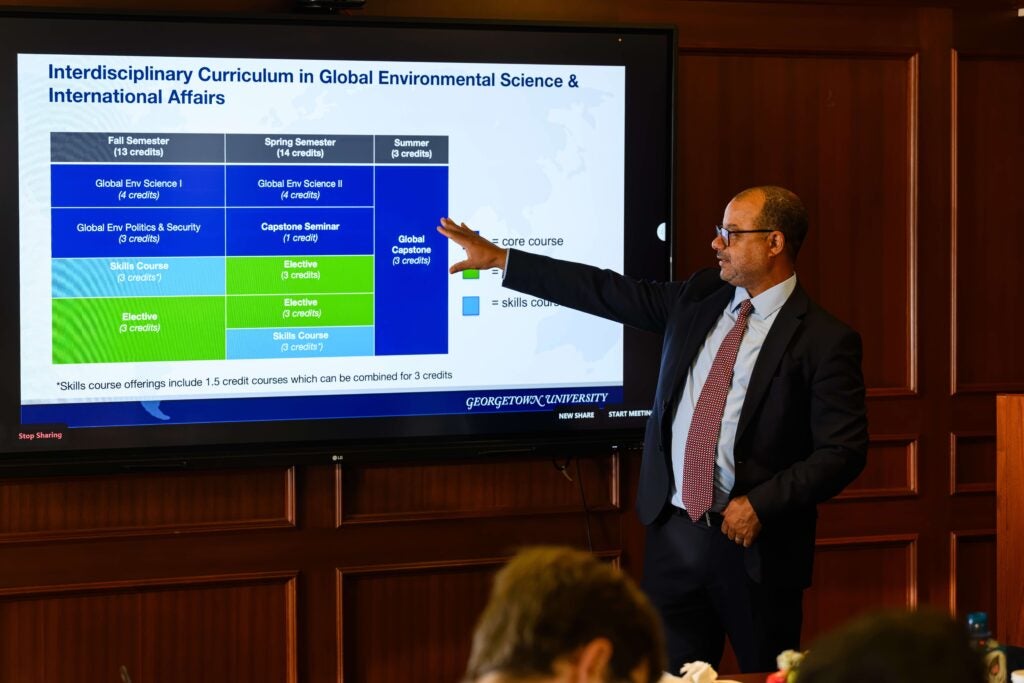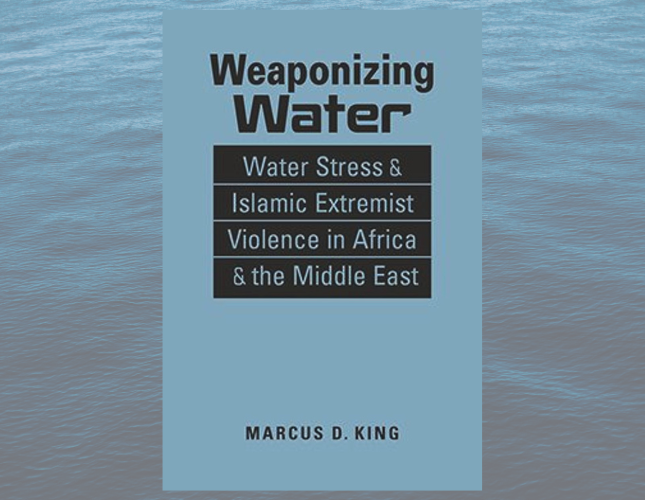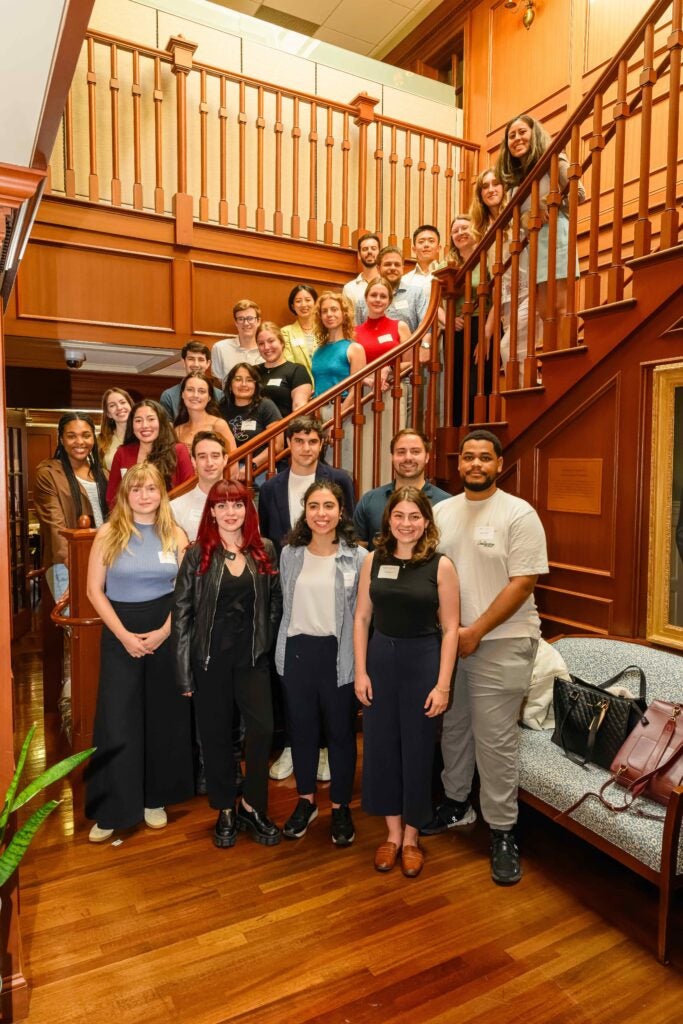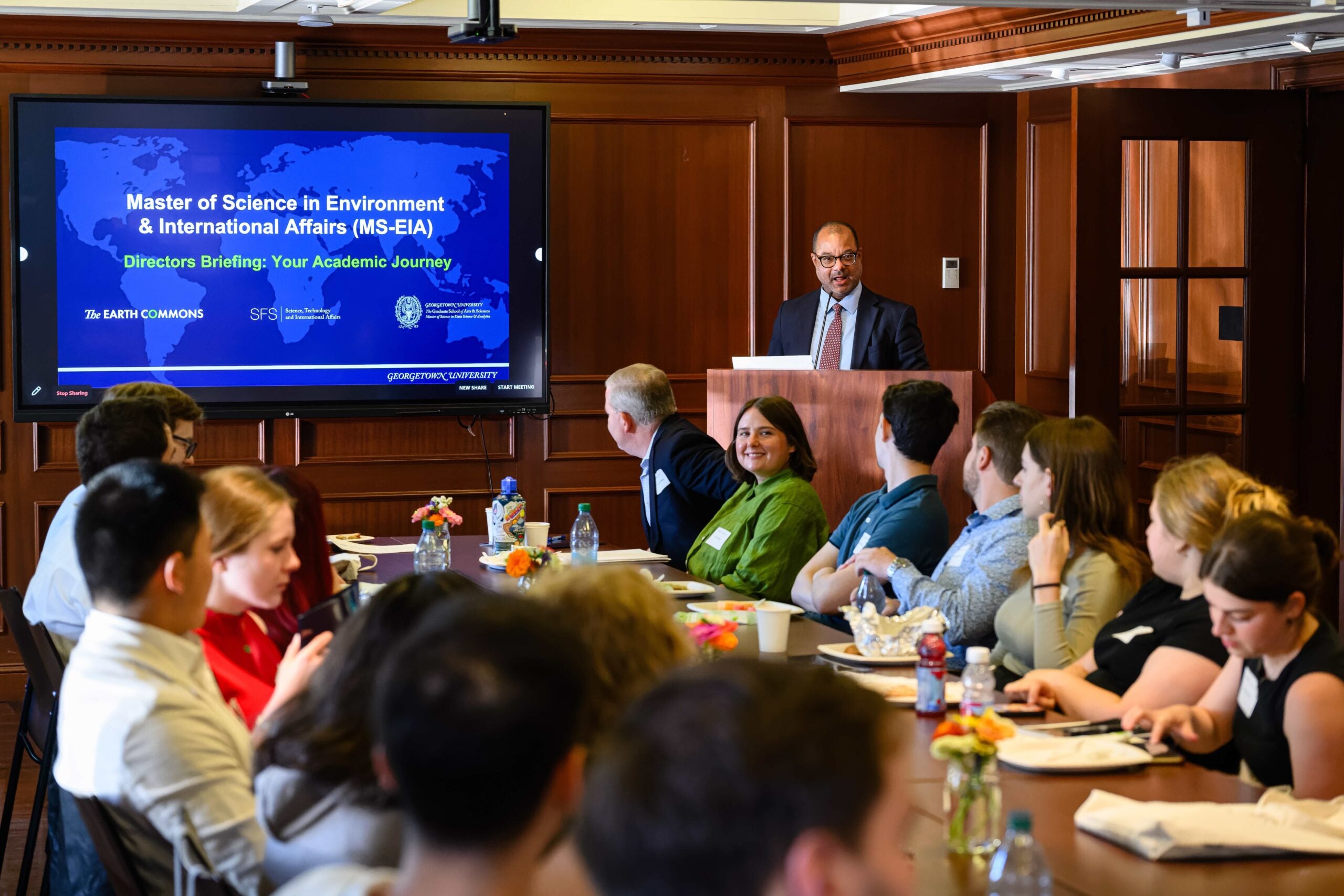On the Way to a New Degree: One Security Guy’s Journey to the Hilltop and Back Again
Most people and ideas have an origin story. For Dr. Marcus King, that was a childhood marked by environmental beauty–and scarring–as he watched acid rain’s severe impact on aquatic ecosystems in the lakes of his beloved backyard Adirondack Mountains and received chemical burns from playing in the PCB-contaminated Hudson River. For the new joint Earth Commons and School of Foreign Service (SFS) Masters of Environment and International Affairs (MS-EIA) degree, it was a collaborative vision from Earth Commons Dean Peter Marra and SFS’ Science, Technology, and International Affairs program director Joanna Lewis, brought to life by its new Director, Dr. King.
The return to Georgetown as Director of the MS-EIA degree is a full-circle move for King. A School of Foreign Service alumnus, King began working for the Bill Clinton presidential campaign through the Georgetown College Democrats. Ultimately, Clinton (also a Georgetown alumnus), hired King right after graduation. This catapulted King into the world of government.

Dr. King’s recent article in Common Home, Climate Change and the Water Weapon: How Rising Temperatures are Expanding the Footprint of Conflict, explores the research that informed his book on the security dimensions of global water threats
At the start, King was a self-described “hard security guy,” focusing mainly on the nuclear threat. But as he moved through terms serving in the Department of Energy and then Defense, he became aware of the emerging challenge of the climate crisis. “It became the new transboundary security issue that replaced the threat of nuclear weapons,” says King. Like he hopes students seeking the MS-EIA program will do, he then entered a master’s program to deepen his growing understanding of the environmental threat and investigate its security implications.
What emerged for King was a commitment to an interdisciplinary field of study—now called environmental security—that King began to shepherd through think tanks and later the academic world. These experiences shaped what he sought to create with the MS-EIA degree, he reflects: “I myself as well as senior government officials I supported became a model for thinking about academic training we lacked and how this degree could provide that for future leaders.”
The MS-EIA welcomed its first cohort of students this year. It is a 12 month, 30 credit, Science Technology Engineering and Math (STEM) designated degree focused on the twin pillars of theory and practice. Like all joint degrees of the Earth Commons, it is explicitly interdisciplinary, the practical skills classes available were selected by future employer demand, and the program touts opportunities for students to gain experience in the Georgetown community and in DC. King’s guiding hand can be seen in the MS-EIA’s course of study.

Dr. King explains the core curriculum of the MS in Environment & International Affairs, highlighting the Global Capstone component.
As an SFS alumnus, King already had an appreciation for interdisciplinary international affairs practice, which he found necessary to answer complex international questions. Yet, when he found himself working on international agreements both in nuclear nonproliferation and later on climate agreements in the 90s, he found that “what I really lacked was the technical knowledge about the issues that were the subject of the negotiations. For example, I was part of the denuclearization discussions—and I hadn’t taken physics.”
Despite attaining another interdisciplinary degree—this time from the Fletcher School, Tufts University’s graduate school of global affairs— King still recognized his scientific understanding was lacking when, for example, he represented the United States in the negotiation of the UN Framework Convention on Climate Change. “I didn’t understand the mechanics of climate change, and that was really important as the negotiations got more technical and less political,” he says.

Dr. King’s most recent book, Weaponizing Water: Water Stress and Islamic Extremist Violence in Africa and the Middle East, is an interdisciplinary look at the environmental security questions raised by water scarcity.
So, in designing the coursework for the MS-EIA degree, integrating scientific fluency was a guiding principle. The course of study offered not only seeks to hold the environmental threat in a holistic view, with foci on both mitigation and adaptation and even consequences of failure to adapt, but also to round out students’ diverse undergraduate educations, whether in the sciences or liberal arts. The aim is “to give a scientific dimension to a student’s policy background or a policy dimension to a student’s scientific background,” King explains. “The goal is not so much to train an entering student to be a scientist in a one-year program, but to give the background needed to understand the technical content of an issue even if they don’t perform the specific research themselves.”
At Georgetown, the ethical framework based on a Jesuit education also influences the holistic approach to the MS-EIA curriculum. To King, this is “the idea of putting people first. You need to be able to take in information from all these different fields if your goal in the end is not only environmental sustainability but also improving the human condition.”
A Conversation with Dr. Marcus King, Security Expert, from his time as a Senior Fellow at the Center for Climate and Security, The Climate and Security Podcast
Likewise, when King considered what else was “missing” from his international affairs education, it was practical skills–which became another defining feature of the MS-EIA program. “The skill courses are responsive to the demand from professionals that are looking for specific skills, such as environmental sensing, scientific communication, and the ability to manipulate data which are useful for jobs related to climate policy for example.” Students can tailor their degrees by electing which skills courses they take, but they are a required part of the curriculum. A capstone project that spans the final two of the three-semester program allows students to directly utilize these skills in projects with real-world applications. By combining a robust interdisciplinary education with skills courses, the goal is to move students from theory into practice.
The theory-to-practice channel is important to Dr. King who was hired nearly on-site by a member of the Center for Naval Analyses during his Ph.D dissertation. Only the second person in his program to combine classical security studies and environmental policy studies, King argued that government agencies should consider the climate crisis as a security threat. Unbeknownst to him, they already were—and they wanted him onboard, immediately.

The inaugural cohort of the MS in Environment & International Affairs gathers at their orientation to kick-off the one-year-long program.
As King moved through his various government appointments, think tank positions and even his pivot towards academia as a director for a large international affairs graduate program at a neighboring institution, King kept his affinity for Georgetown in mind. Ultimately, King’s return to the hilltop really stemmed from a desire “to work with what I consider the most existential challenges of our time, which to me are climate change and the biodiversity crisis. With Georgetown being a school that does influence international policy, I wanted to help guide the institution towards engagement with those issues in a way that I hadn’t seen done before. I wanted to shepherd something like this.”
As King’s path makes clear, the environmental issues of our time are complex and demand a lot of an educational program. The MS-EIA seeks to rise to the occasion.

